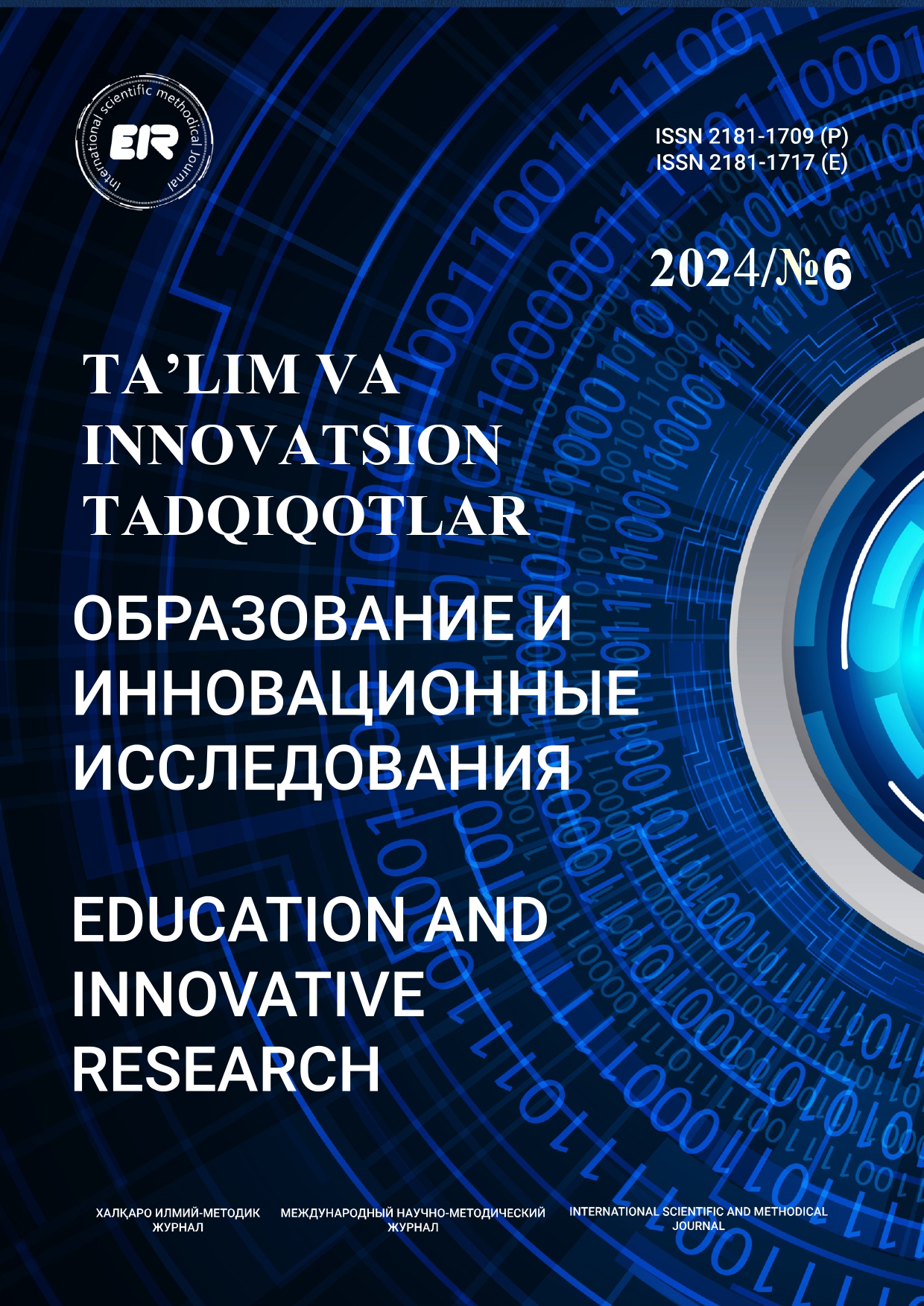ВОПРОСЫ ПОВЫШЕНИЯ МЕДИАГРАМОТНОСТИ БУДУЩИХ ПЕДАГОГИ В ЦИФРОВЫХ УСЛОВИЯХ
Назарматова Дильшода Умарали қизи преподаватель Ташкентского университета прикладных наук.
Ключевые слова:
воспитатель, ребенок, информация, инновация, фактор, компетентность, электронные ресурсы, умение, деятельность.Аннотация
Учитывая нынешний информационный век, мы не можем отказаться от компьютеров и других электронных ресурсов и продолжать свою работу без них. Поэтому легче повысить компетентность использования информационных ресурсов и эффективно их использовать, чем отказываться от них. Потому что весь мир вокруг нас оцифрован технологиями. Поэтому наша главная задача – сформировать у будущих учителей навыки использования электронных ресурсов и научить их правильно их подавать. В этой статье также показаны факторы и обязанности, которые должны знать будущие педагоги при использовании электронных ресурсов.
Библиографические ссылки
Agibova, I. & Fedina, O. (2019). Fundamental education in university in development of future teachers`professional competences. European Proceedings of Social & Behavioural Sciences, LXXVIII, 249-259.
Demarle-Meusel, H., Sabitzer, B., & Sylle, J. (2017, April). The Teaching-Learning-Lab: Digital literacy and computational thinking for everyone. In International Conference on Computer Supported Education (Vol. 2, pp. 166-170). SCITEPRESS.
Fernández, O. G. G. & Yachina, N. P. (2018). Development of digital competence of the future teacher in the educational space of higher education institutions. Vestnik VGU - VSU bulletin. Series: Problems of higher education, 1, 134-138.
Maxwell, A., Jiang, Z., & Chen, C. (2017). Mobile learning for undergraduate course through interactive apps and a novel mobile remote shake table laboratory. In Proceedings of 124th Annual Conference and Exposition, 24.
Quarles, A. M., Conway, C. S., Harris, S. M., Osler II, J. E., & Rech, L. (2018). Integrating digital/mobile learning strategies with students in the classroom at the historical black college/university (HBCU). In Handbook of research on digital content, mobile learning, and technology integration models in teacher education (pp. 390-408). IGI Global.





